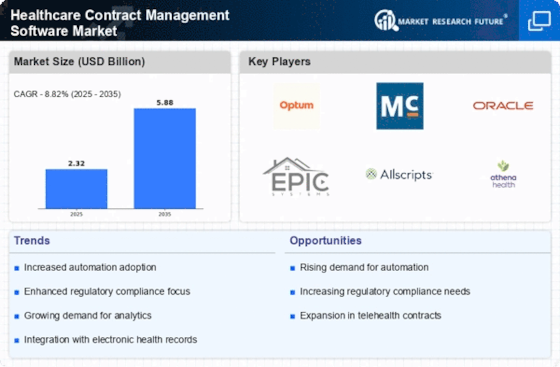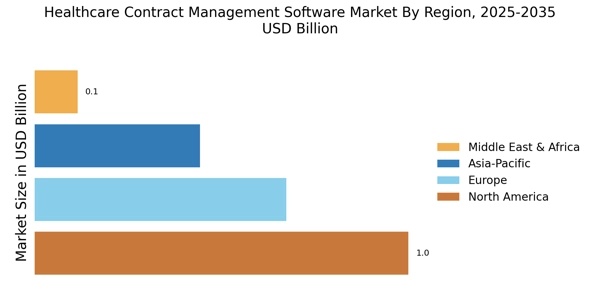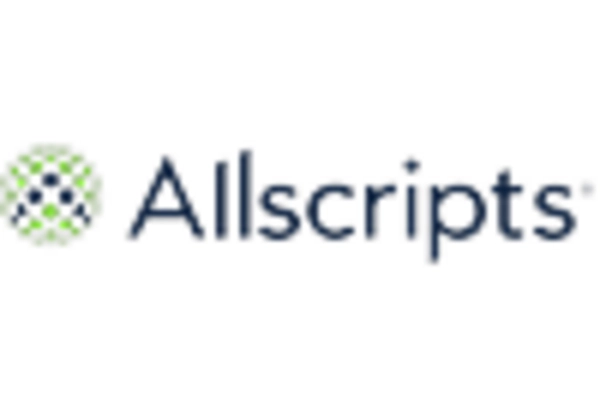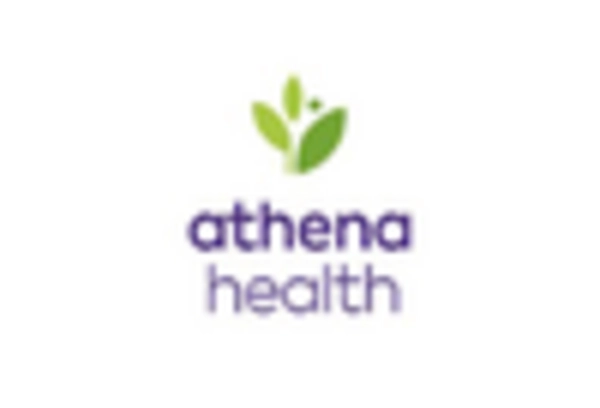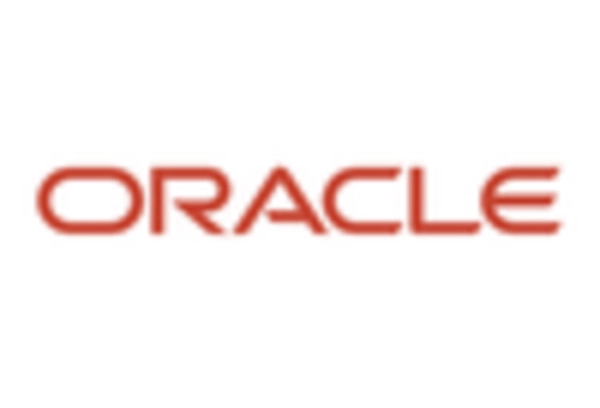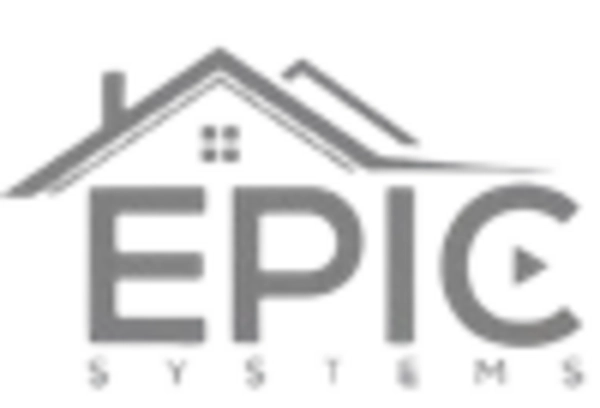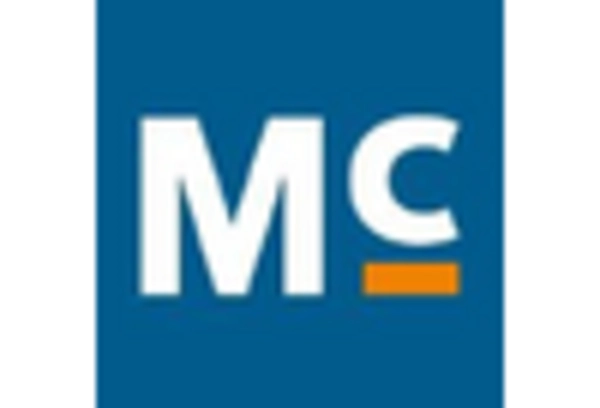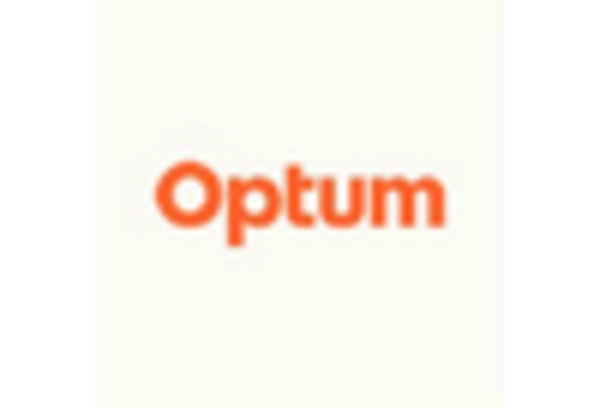Rising Need for Cost Efficiency
The Healthcare Contract Management Software Market is witnessing a pronounced shift towards cost efficiency. Healthcare organizations are increasingly seeking solutions that streamline contract processes, reduce administrative burdens, and minimize errors. This trend is driven by the need to optimize operational costs while maintaining compliance with regulatory standards. According to recent data, healthcare providers that implement contract management software can reduce contract cycle times by up to 30%, leading to significant savings. As healthcare systems face mounting financial pressures, the demand for software that enhances financial performance and operational efficiency is likely to grow, positioning cost efficiency as a key driver in the Healthcare Contract Management Software Market.
Increased Focus on Data Security
In the Healthcare Contract Management Software Market, the emphasis on data security is becoming increasingly paramount. With the rise in cyber threats and data breaches, healthcare organizations are prioritizing solutions that offer robust security features to protect sensitive patient and contractual information. The software must comply with stringent data protection regulations, ensuring that all contracts are securely stored and accessed. As organizations invest in technologies that enhance data security, the demand for contract management software that integrates advanced security protocols is likely to increase. This focus on safeguarding data not only protects organizations from potential breaches but also fosters trust among patients and stakeholders, thereby propelling growth in the Healthcare Contract Management Software Market.
Integration with Existing Systems
The Healthcare Contract Management Software Market is experiencing a surge in demand for solutions that seamlessly integrate with existing healthcare systems. As organizations strive for interoperability, the ability to connect contract management software with electronic health records (EHR) and other operational systems is becoming essential. This integration facilitates a more holistic approach to managing contracts, allowing for real-time data sharing and improved decision-making. Organizations that leverage integrated solutions can enhance their operational efficiency and reduce the risk of errors associated with manual data entry. As the healthcare landscape evolves, the need for cohesive systems that work in tandem is likely to drive the adoption of contract management software, thereby influencing the Healthcare Contract Management Software Market.
Regulatory Compliance Requirements
The Healthcare Contract Management Software Market is significantly influenced by the stringent regulatory landscape governing healthcare operations. Organizations are compelled to adhere to various regulations, including HIPAA and other compliance mandates, which necessitate robust contract management solutions. The software aids in ensuring that contracts are compliant with legal requirements, thereby mitigating risks associated with non-compliance. As regulatory scrutiny intensifies, the demand for software that can automate compliance tracking and reporting is expected to rise. This trend is underscored by the fact that non-compliance can result in hefty fines, making effective contract management a priority for healthcare organizations, thus driving growth in the Healthcare Contract Management Software Market.
Growing Adoption of Cloud-Based Solutions
The Healthcare Contract Management Software Market is witnessing a notable shift towards cloud-based solutions. The advantages of cloud technology, such as scalability, accessibility, and cost-effectiveness, are compelling healthcare organizations to adopt these solutions. Cloud-based contract management software allows for remote access, enabling healthcare professionals to manage contracts from various locations, which is particularly beneficial in a decentralized healthcare environment. Furthermore, the ability to scale operations without significant upfront investments makes cloud solutions attractive for organizations of all sizes. As more healthcare providers recognize the benefits of cloud technology, the adoption of cloud-based contract management software is expected to accelerate, thereby shaping the future of the Healthcare Contract Management Software Market.


